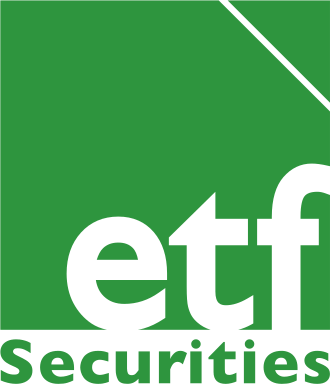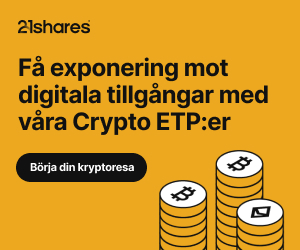HANetf, Europas första och enda oberoende white-label UCITS ETF och ETC-plattform, och ledande leverantör av digitala tillgångs-ETPer, är glada att kunna meddela att Future of Defence UCITS ETF (ticker: ASWC) nu har ackumulerat 2,00 miljarder dollar i förvaltat kapital (AUM).
Bara under 2025 har ETFen attraherat 1,07 miljarder dollar i nya nettotillgångar. Detta, tror vi, till stor del har drivits av Europas kapplöpning att återupprusta sig mitt i växande frågor kring tillförlitligheten i USA:s stöd. USA pausade nyligen militärt bistånd till Ukraina, vilket ledde till att underrättelsedelningen pausades och Kiev blev oförmöget att använda vissa amerikanska vapen. Detta var en tydlig varning till europeiska ledare – USA kan överge dem när som helst.
Efter ett decennium av att inte ha uppnått 2 %-målet av BNP har Europa tillsammans underutnyttjat med uppskattningsvis 850 miljarder euro. Men nu, med ökande geopolitiska spänningar och ifrågasatt amerikanskt militärt stöd, ser de europeiska NATO-medlemmarna över sina försvarsstrategier och ökar sina militära utgifter kraftigt. För att återuppbygga och modernisera sina väpnade styrkor riktar regeringarna dessa förnyade investeringar mot europeiska försvarsföretag – vilket stärker kontinentens strategiska självförsörjning.
Europas upprustning handlar inte bara om att spendera mer – det handlar om att bygga europeiskt oberoende och autonomi inom försvaret. För att minska beroendet av amerikansk utrustning prioriterar EU europeiskt tillverkade vapen, fordon och system, vilket ger den europeiska försvarssektorn en stark medvind.
ASWC ETF syftar till att ge exponering mot NATO och NATO+-allierades försvars- och cyberförsvarsutgifter. Unikt nog använder försvars-ETF en ”NATO-skärm”, vilket begränsar exponeringen mot företag med säte i NATO eller NATO+-allierades medlemsstater.
På detta sätt försöker ETFen att anpassa sig till värderingarna hos investerare som kan ha oro över försvarsinvesteringar, men inte kan ignorera det rådande politiska klimatet och därför söker en smartare och mer genomtänkt strategi. NATO är en defensiv allians och anger själva att ”avskräckning och försvar är en av dess kärnuppgifter” – att fokusera på företag som är verksamma i NATO-allierade länder begränsar möjligheten att ETFens beståndsdelar är företag som är verksamma i länder som en dag skulle kunna bli motståndare till alliansen.
HANetf lanserade nyligen Future of European Defence UCITS ETF (ticker: (8RMY) som exkluderar USA och syftar till att fånga upp Europas upprustning. Som ett europeiskt företag anser HANetf att det är en plikt att stödja investeringar i europeiskt försvar i takt med att kontinenten försöker stärka sin säkerhet. 8RMY ETF har sedan dess överstigit 10 miljoner dollar i förvaltat kapital under sin första noteringsvecka.
På liknande sätt använder 8RMY ”NATO-skärmen” för att begränsa exponeringen mot företag med säte i NATO eller NATO+-allierade medlemsstater.
Hector McNeil, medgrundare och VD för HANetf, kommenterar:
”USA har skickat ett budskap till Europa och det har mottagits tydligt och tydligt. Amerikanskt militärt bistånd, som en gång ansågs vara en garanti, är nu osäkert – och med den osäkerheten kommer ett tydligt direktiv. Europa måste anpassa sig till en värld där USA inte är garant för säkerhet; Europa måste förbereda sig på att försvara sig ensamt.
”Detta har inte gått investerare obemärkt förbi, med stark kursutveckling för europeiska försvarsaktier. Företag som tyska Rheinmetall, brittiska BAE Systems och franska Thales har potentiellt nytta av det. Future of Defence UCITS ETF (ticker: ASWC) gör det möjligt för investerare att få exponering mot dessa företag (och andra) på ett diversifierat sätt.” ”ETFens NATO-screening skiljer den från sina konkurrenter genom att säkerställa att investerare får exponering mot NATO och NATO+-allierade försvarsföretag, samtidigt som de undviker företag som är verksamma i länder som en dag skulle kunna bli motståndare till alliansen. Ingen annan försvarsfokuserad ETF inkluderar denna NATO-screening och som sådan är NATO-ETF:n verkligen unik.
”För de som söker mer fokuserad exponering lanserade vi nyligen Future of European Defence UCITS ETF (ticker: 8RMY), och den har överstigit 10 miljoner dollar i förvaltat kapital under sin första handelsvecka. Vi är ett europeiskt företag, och som sådan anser vi att det är vår plikt att stödja investeringar i europeiskt försvar i ett så avgörande ögonblick. Denna ETF exkluderar amerikanska aktier och syftar till att fånga upp Europas upprustning.”
Handla 8RMY ETF
Future of European Defence UCITS ETF (ticker: 8RMY) är en europeisk börshandlad fond. Denna fond handlas på flera olika börser, till exempel Deutsche Boerse Xetra och Euronext Paris. Av den anledningen förekommer olika kortnamn på samma börshandlade fond.
Det betyder att det går att handla andelar i denna ETF genom de flesta svenska banker och Internetmäklare, till exempel Nordnet, SAVR, DEGIRO och Avanza.
Handla ASWC ETF
HANetf Future of Defence UCITS ETF (ASWC ETF) är en europeisk börshandlad fond. Denna fond handlas på flera olika börser, till exempel Deutsche Boerse Xetra och London Stock Exchange. Av den anledningen förekommer olika kortnamn på samma börshandlade fond.
Det betyder att det går att handla andelar i denna ETF genom de flesta svenska banker och Internetmäklare, till exempel Nordnet, SAVR, DEGIRO och Avanza.

 Nyheter4 veckor sedan
Nyheter4 veckor sedan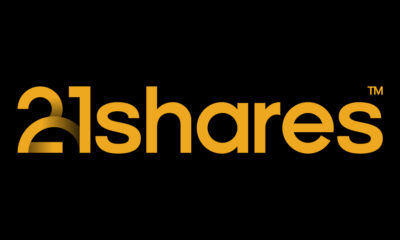
 Nyheter3 veckor sedan
Nyheter3 veckor sedan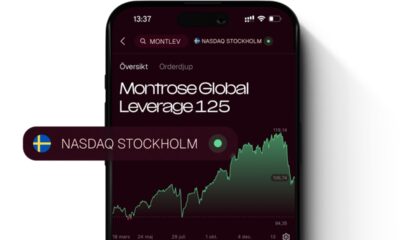
 Nyheter2 veckor sedan
Nyheter2 veckor sedan
 Nyheter4 veckor sedan
Nyheter4 veckor sedan
 Nyheter3 veckor sedan
Nyheter3 veckor sedan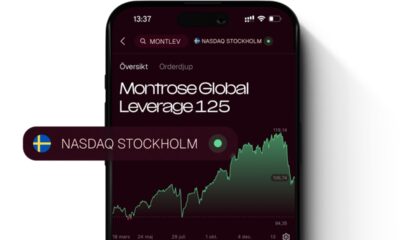
 Nyheter2 veckor sedan
Nyheter2 veckor sedan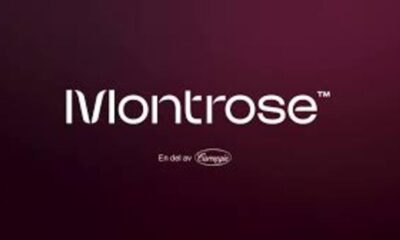
 Nyheter4 veckor sedan
Nyheter4 veckor sedan
 Nyheter2 veckor sedan
Nyheter2 veckor sedan
